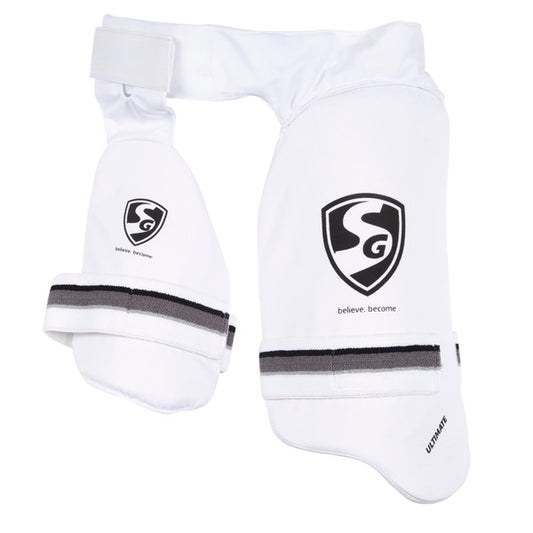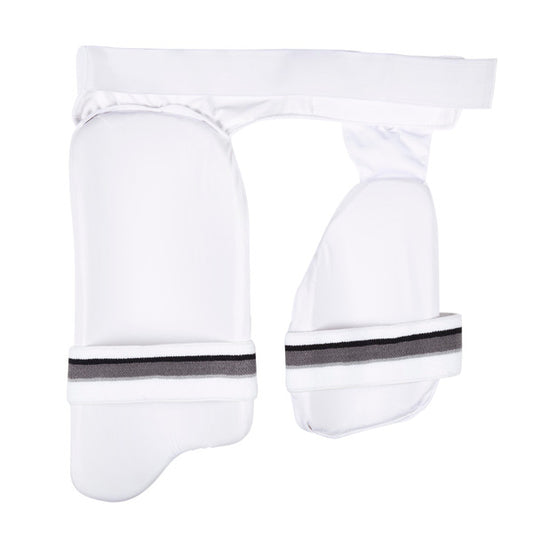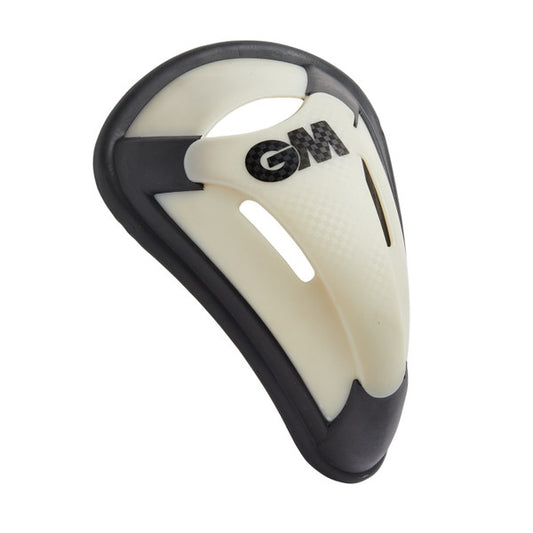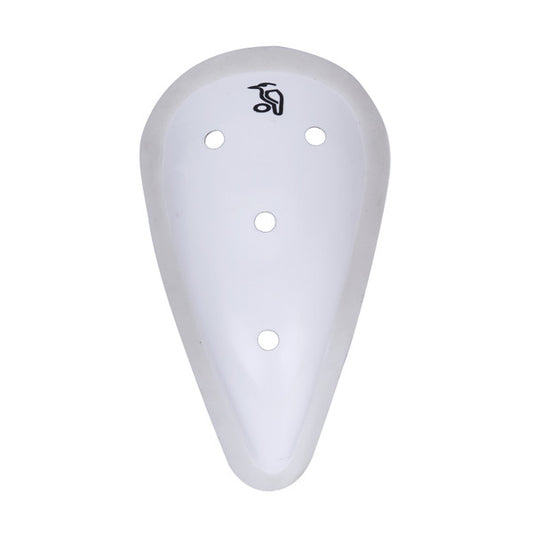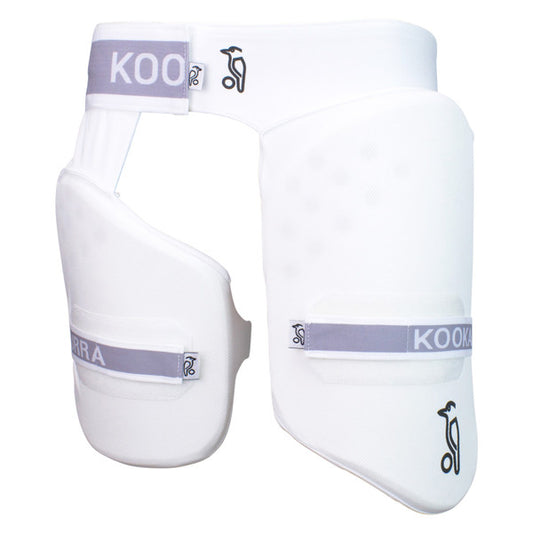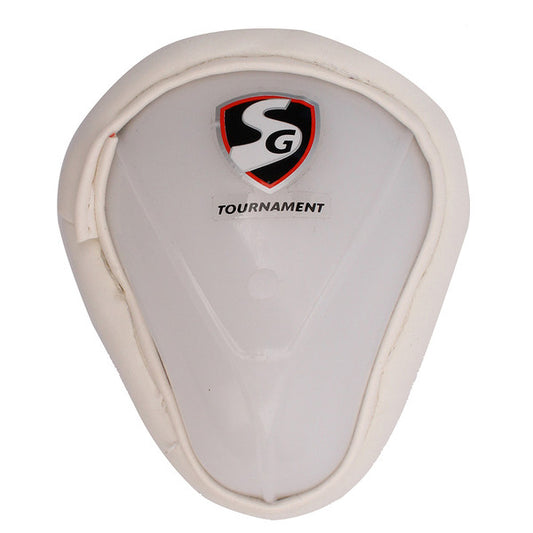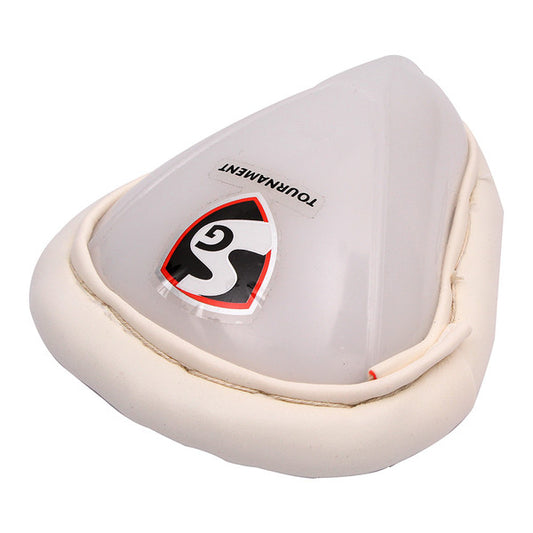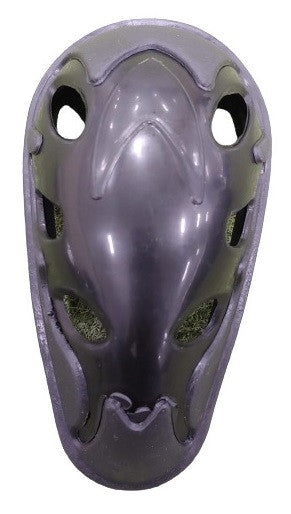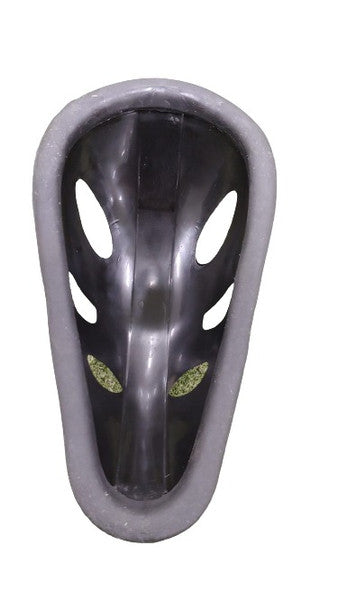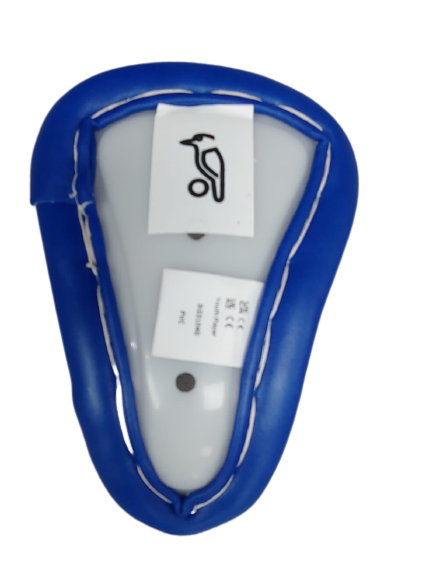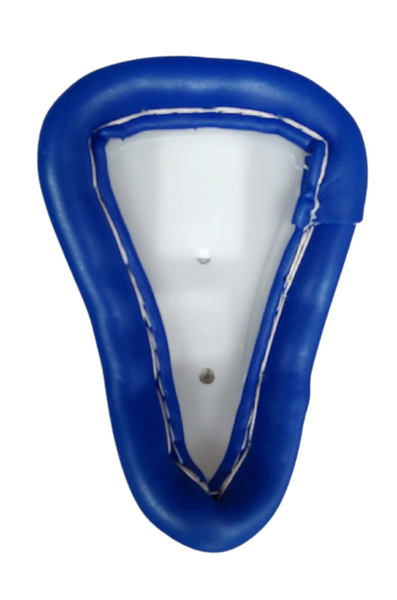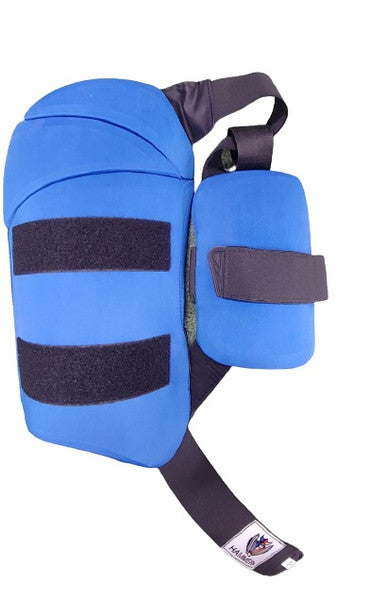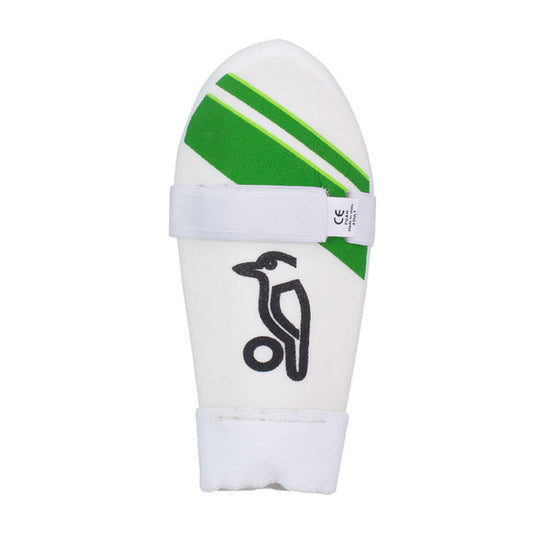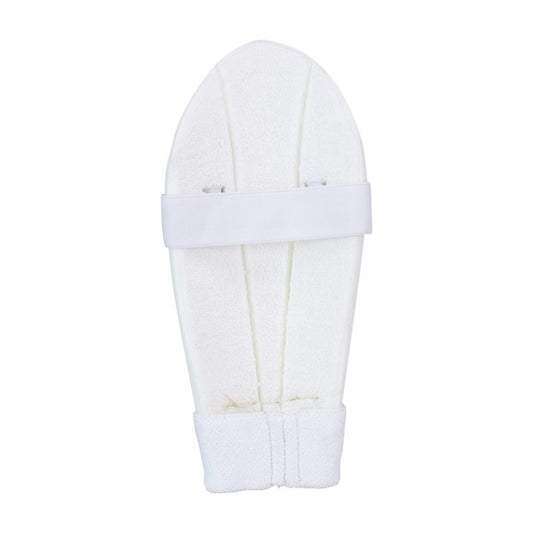Cricket is a sport enjoyed by people of all ages, but it can also be a physically demanding game. To minimize the risk of injury while playing cricket, it's essential to wear the appropriate protective gear. This is especially important for children, who are still developing their physical abilities and may be more susceptible to injury. Cricket protective gear, such as chest guards, arm guards, thigh guards, and abdo guards, can help ensure that kids are safe and comfortable while playing the sport.
This guide will cover the basics of each protection equipment in detail, including the size guide and maintenance.
The Chest Guard
A Chest Guard, also known as a Heart Guard, is an essential protective equipment cricket batsmen use. The primary function of a chest guard is to protect the chest, heart, and lungs, some of the most vulnerable parts of the body, from being hit by the ball. Chest guards are made from high-density foam, which provides good protection while still being lightweight and comfortable to wear.
When facing fast bowling, particularly on bouncy pitches, a chest guard can play a crucial role in ensuring the safety of the batsman. The foam material used in chest guards is designed to absorb the impact of the ball and reduce the risk of injury. Most chest guards are designed to fit comfortably under the shirt and are attached to the batting pads with Velcro straps.
Junior Cricket Arm Guard
developing and more susceptible to injury. The arm guard provides additional protection to the hand and fingers, which are already covered by the batting gloves, and covers the arm facing the bowler. This helps to reduce the risk of injury from fast deliveries and accidental blows.
Arm guards for kids are usually made from high-density foam and designed to absorb the ball's impact. They come in different sizes to fit kids of different ages and sizes, and are usually attached to the batting gloves with Velcro straps. A well-fitted arm guard should be comfortable and not impede the child's movement while batting.
It is important to choose the right size arm guard for your child to ensure a proper fit. A cricket arm guard size chart is available to help parents determine the right size for their child. It is recommended to measure the length of the child's arm and compare it to the size chart before making a purchase.
Cricket Arm Guard Size Chart:
|
Junior |
21.5cm |
|
Youth |
24cm |
The Thigh Guard and Inner Thigh Guard
The Thigh Guard and Inner Thigh Guard are an essential part of a cricket player's protective gear, especially for kids. The Thigh Guard protects the upper legs, and the Inner Thigh Guard protects the inner thigh area. These two guards together offer maximum protection to the vulnerable parts of the legs, which are exposed above the batting pads.
Thigh guards for kids are usually made from lightweight materials and designed to be comfortable to wear. They can either be in the form of a single guard for each leg or as a combo of thigh guards attached by Velcro straps. This allows for a snug fit and reduces the guard's chance of slipping or moving during play.
It is crucial to choose the right size Thigh Guard and Inner Thigh Guard for your child to ensure a proper fit. A cricket thigh guard size chart is available to help parents determine the right size for their children. It is recommended to measure the length of the child's thigh and compare it to the size chart before making a purchase.
Cricket Thigh Guards Size Chart:
|
Size |
Length of Main Thigh |
Length of Inner Thigh |
|
Small Junior |
35cm |
21cm |
|
Junior |
38.5cm |
23cm |
|
Youth |
40.5cm |
24.5cm |
Abdo Guard
The Abdo Guard is an important piece of cricket equipment that helps protect a young cricketer's abdomen and reproductive organs. As kids are still developing physically, it is crucial that they wear proper protection to avoid any severe injuries during the game.
The Abdo Guard comes in different sizes to fit the needs of young cricketers and can be worn comfortably under their pants or shorts. It provides essential protection and peace of mind for kids and their parents, allowing them to play the game with confidence and enjoyment. Whether your child is a budding batsman or an enthusiastic fielder, make sure they have an Abdo Guard in their cricket kit bag to stay protected on the pitch.
A standard-sized abdo guard will work for cricketers over 16, while a youth/junior pad is needed for kids.
How to Clean Your Protective Equipment?
How to Clean a Cricket Chest Guard?
Cleaning a cricket chest guard is important to maintain its quality and extend its life. Here is a step-by-step process on how to clean your chest guard:
Gather materials: Before you start cleaning, gather materials such as a mild detergent, a soft-bristled brush, and a clean cloth.
Remove any dirt or debris: Brush off any dirt or debris from the surface of the chest guard using the soft-bristled brush.
Prepare the cleaning solution: Mix a small amount of mild detergent with warm water in a bucket or sink.
Clean the chest guard: Dip a clean cloth into the cleaning solution and gently scrub the surface of the chest guard. Make sure to clean every surface, including the straps and Velcro.
Rinse the chest guard: Rinse the chest guard thoroughly with clean water to remove any soap residue.
Dry the chest guard: Hang the chest guard to air dry, or place it on a clean towel. Avoid exposing the chest guard to direct sunlight or heat as this can cause the foam to deteriorate.
Store the chest guard: Once the chest guard is completely dry, store it in a cool and dry place. This will help to prevent any mold or mildew from developing.
Following these steps, you can effectively clean your cricket chest guard and keep it in good condition.
How to Clean a Cricket Arm Guard?
Here is a step-by-step process for cleaning a cricket arm guard:
Remove any dirt or debris from the surface of the arm guard using a soft brush or cloth.
Fill a basin or sink with warm water and add a small amount of gentle detergent.
Submerge the arm guard in the water and gently agitate it to loosen any dirt or sweat buildup.
Rinse the arm guard thoroughly with warm water to remove all traces of detergent.
Place the arm guard on a clean towel and shape it back to its original form.
Allow the arm guard to air dry completely, away from direct sunlight or heat sources.
Once the arm guard is completely dry, store it in a cool, dry place until you're ready to use it again.
How to Clean Cricket Thigh Guards?
Remove the thigh guards from the equipment bag or where they are stored.
Check for any stains, dirt or grime on the guards.
Fill a sink or basin with warm water and a mild detergent.
Soak the thigh guards in the solution for 15-20 minutes.
Scrub the guards gently with a soft brush or cloth to remove dirt and grime.
Rinse the guards thoroughly with warm water.
Hang the guards up to air dry, away from direct sunlight or heat sources.
Once dry, store the guards in a clean and dry place, ready for the next use.
How to Clean a Cricket Abdo Guard?
Here are some steps for cleaning a cricket abdo guard:
Remove any excess dirt or debris from the guard using a soft brush or cloth.
Fill a basin with warm water and a mild detergent.
Soak the guard in the water for 10-15 minutes.
Use a soft brush or cloth to gently scrub away any dirt or stains.
Rinse the guard thoroughly with clean water.
Hang the guard up to air dry completely. Avoid putting it in direct sunlight or a dryer.
Store the clean and dry abdo guard in a cool, dry place until it is needed for use again.
What we covered in this article:
- Chest Guard
- Thigh guard and size guide
- Arm guard and size guide
- Abdo guard and size guide
- Maintenance Guide
For the past two decades, Cricketstoreonline has been serving cricketers in North America and all over the world. Our experts know precisely how to serve you. We are the certified distribution partners of major cricket brands and only sell original products. If you want high-quality cricket guards for your kid, let us guide you!
You can call our experts from CricketStoreOnline or visit our expert blog on cricket to get more insights on cricket equipment!

